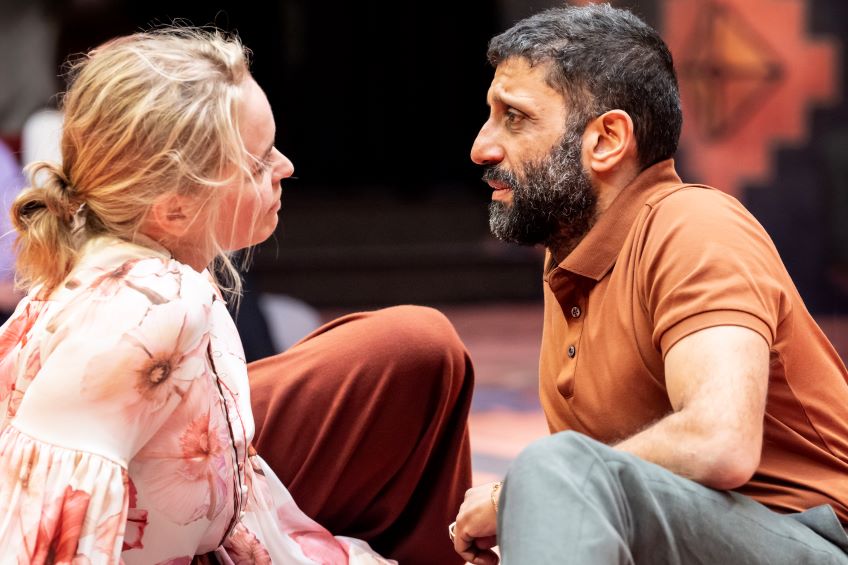Russians, said Chekhov, are the funniest people on earth when they are being serious. He also said his play had turned out not to be a drama but a comedy and in places, even a farce.
Often performed, Chekhov is one of my favourite playwrights. The Cherry Orchard, which premiered in 1904, is one of the great plays of the 20th century. This radical version, written and directed by the Australian director Benedict Andrews, is the worst I have seen. Andrews also directed an awful production of Chekhov’s Three Sisters at the Young Vic in 2012.
The Donmar has been turned into a theatre-in-the-round and the stage has been richly carpeted and hoovered. The actors sit on the floor. It is never clear who is related to whom and where and when the action is taking place. There is no furniture, not even the old bookcase, which receives a eulogy. The actors are oddly costumed; and this is especially true of the odious valet, Yasha. They could all still be in rehearsal, trying things out. Characterisation is thin and the modern vulgar language jars.
The actors sit in the audience when they are not acting and often speak directly to individual members, who are invited on stage to stand-in for the old bookcase or to dance during the over-extended party scene which is played out with a live band and microphones.

There are two major innovations in casting which are absolutely fine. First, the very old manservant, is played by 89-year-old June Watson, and the elderly tramp is played by a boy beggar.
Varya, the adopted daughter and housekeeper, shrieks too much and the scene when Lopakhin, the grandson of serf, a nouveau riche businessman, fails to propose to her, is not moving at all. The one and only scene which really works is when Lopakhin reveals that he has bought the cherry orchard and revels in his success. Adeel Akhtar is the most convincing actor.
Nina Hoss’s performance as Ranevskaya, the impoverished aristocrat, who owns the bankrupted family estate, would work better in a more traditional production.
To learn more about Robert Tanitch and his reviews, click here to go to his website. 




